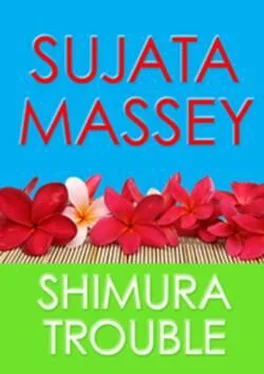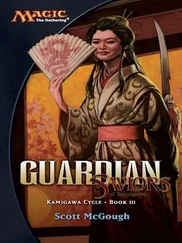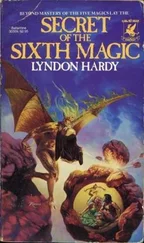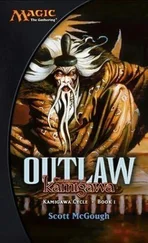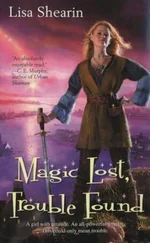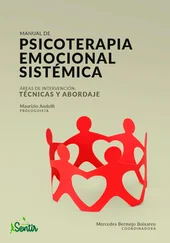Sujata Massey - Shimura Trouble
Здесь есть возможность читать онлайн «Sujata Massey - Shimura Trouble» весь текст электронной книги совершенно бесплатно (целиком полную версию без сокращений). В некоторых случаях можно слушать аудио, скачать через торрент в формате fb2 и присутствует краткое содержание. Жанр: Детектив, на английском языке. Описание произведения, (предисловие) а так же отзывы посетителей доступны на портале библиотеки ЛибКат.
- Название:Shimura Trouble
- Автор:
- Жанр:
- Год:неизвестен
- ISBN:нет данных
- Рейтинг книги:3 / 5. Голосов: 1
-
Избранное:Добавить в избранное
- Отзывы:
-
Ваша оценка:
- 60
- 1
- 2
- 3
- 4
- 5
Shimura Trouble: краткое содержание, описание и аннотация
Предлагаем к чтению аннотацию, описание, краткое содержание или предисловие (зависит от того, что написал сам автор книги «Shimura Trouble»). Если вы не нашли необходимую информацию о книге — напишите в комментариях, мы постараемся отыскать её.
Shimura Trouble — читать онлайн бесплатно полную книгу (весь текст) целиком
Ниже представлен текст книги, разбитый по страницам. Система сохранения места последней прочитанной страницы, позволяет с удобством читать онлайн бесплатно книгу «Shimura Trouble», без необходимости каждый раз заново искать на чём Вы остановились. Поставьте закладку, и сможете в любой момент перейти на страницу, на которой закончили чтение.
Интервал:
Закладка:
There were some chuckles from behind me, and I guessed that I’d provided the guys with an unintended double-entendre to brighten their wait.
“Nice place! I been there a few times to visit a friend.” Charisse dimpled at me. “Anyway, welcome to Hawaii.”
Someone behind me was making impatient grunts so I got out of the way with my goods and found a seat at a sugar-dusted table just vacated by a mother and two kids.
The coffee was good, but not quite as full-bodied as I liked. I sipped anyway, and opened the Star-Bulletin. I glanced at a main section full of national wire stories, then started in on the second section devoted to local news. I read about how a private school founded by a Hawaiian princess was struggling to maintain a rule that its students have Hawaiian ancestry. What did that mean, exactly? I wondered, looking around me at the mosaic of mixed features and warm skin tones. Who was Hawaiian here, and hadn’t the Hawaiians themselves emigrated from other Polynesian islands?
Clearly, I knew nothing, I thought as I moved on to a picture of an adorable sea turtle and the accompanying soft-news story about how tourists on North Shore beaches were teasing them. When I turned the page, I finally saw a story that really intrigued me, about the place where we were staying. Kainani’s developer, Mitsuo Kikuchi, sought to develop adjacent lands where existing derelict plantation housing remained. The land was owned by Pierce Holdings, which was considering either a lease or outright sale to Kikuchi’s Tokyo-based company.
Kikuchi had to be owner of the grand house I’d seen, I guessed, reading on. Pierce Holdings’ spokesman said that Kikuchi’s planned new restaurant and amusement park would bring a new road and about seven hundred new jobs for leeward Hawaii residents.
However, a preservation group leader argued that the plantation village should be a registered historic landmark, and a group of Hawaiian activists had already filed papers asserting that the fields contained a sacred worship site.
Suddenly, I had the sensation that I was not reading alone. I looked behind me and, sure enough, someone was standing over my shoulder.
6

“HOWZIT?” ASKED THE spy, who was an undeniable hunk-well over six feet and at least two-fifty, with shoulder-length black hair and skin as brown as cocoa. His sleeveless T-shirt and baggy, knee-length shorts revealed geometric blue-green tattoos on muscular arms and calves.
He laughed slightly, as if noticing my covert inspection. Embarrassed, I tried to remember what he’d asked me about. “Well, I’m used to very strong Tanzanian coffee, so Kona’s a bit mild for my taste.”
He looked at me for a second and I had the sense I’d said something very wrong. Then he burst out laughing-a deep, merry laugh that seemed to boom around the store.
“What’s funny?” I asked cautiously.
“You a tourist, huh? I didn’t realize at first, ’cause when I saw you talking to Charisse, I thought you just another hapa chick.”
“Well, I am hapa,” I said, recalling that this was the common term in Hawaii for a person of mixed ancestry. In Japan, the same expression existed, but it was said slightly differently: hafu. In English, it means half. Half a person, not the real thing. Hapa was better; it almost sounded hip.
The hunk interrupted my linguistic analysis. “Yeah, but I asked you howzit, which means, how are you? I wasn’t asking for an opinion on my coffee.”
“Your coffee?” I asked. He wasn’t wearing an apron at his waist like Charisse had. He certainly didn’t look like an employee.
The man laughed again. “I’m Kainoa Stevens, and yes, that cup you’re drinking comes from my cousin’s coffee plantation on the Big Island. I own this place.”
I shook hands reluctantly, because I expected a man who looked part Samoan to have a crusher grip. But the handshake was just firm enough, and he followed it up by pulling a business card out of his baggy shorts pocket. The card, still warm from his body heat, was decorated with twin palms, his name, and the phrase ‘Coffee and Construction’. At the bottom were four phone numbers. Out of habit, I held the card the way one does in Japan, reading everything before carefully before putting it down. Now, I was obligated to introduce myself: I told him my name.
“Yeah, Charisse said you staying at Kainani. How did you ever find your way here?”
“I chanced upon it, when I was jogging through the wilderness area.”
Kainoa laughed. “Had to be something like that, because the road here is pretty indirect. But you gotta understand that it wasn’t wilderness you crossed. It’s all part of the Pierce Holdings, and if you trespass again, you better watch out that the luna don’t catch you.”
“I had no idea I was trespassing. I didn’t see any keep-out signs.”
“That’s probably because you ran through the middle of the fields. There are warning signs on the fence along Farrington Highway.”
“So, what’s a luna?” I asked.
“In plantation time, it was the guy who oversaw the workers. No sugar workers anymore, so Albert Rivera just oversees the security of the land. People around here call him the luna because that’s the job his father worked, and his grandfather, too.”
“Hmm. I guess I’ll have to put together a nice apology for him in advance, because I don’t know how to return to Kainani any other way.”
“That regular route here is via Farrington Highway, but it’s probably four miles longer than the route you took. I’d say, take a chance if you want run over for coffee again-which I’m not even sure you do.” He smiled at me, but I sensed a challenge behind the straight, shining white teeth.
“It’s good coffee, Kainoa, just not as strong as I normally have it. I probably should just order a double shot in my latte.”
“At my cousin’s plantation, he experiments with new varieties all the time. I think I’m gonna tell him, grow me a super-strong bean for strong mainland chicks.”
“Really, don’t go to the trouble!” I suddenly had a sense he was flirting with me, and I didn’t want to encourage him. Kainoa was not only half a decade younger than me; he was not Michael.
“Or better yet, I could sell this place to Mitsuo Kikuchi and make my own coffee plantation on the Big Island. What you think of that?”
“I was reading about Kikuchi’s plans in the paper, as you probably noticed. Are you actually in favor of the development?”
“Sure.” Kainoa’s tone was casual. “I have a construction sideline business, you know, so I’m for most kinds of development. And as far as this business goes, hell, I’d much rather have two roads that come to my shop than a bunch of old shacks going to waste. When I was a kid growing up, sure I liked to hang out there, smoking pakolo with the mokes. Now that I’m a property owner, I don’t want that kind of stuff over here.”
“But you wouldn’t be a property owner with anything to gain if you sold to Kikuchi.”
Kainoa leaned so close that I edged back slightly. “Hey, I’d love to stay where I am. But when Kikuchi has an idea, he gets what he wants. You know the true reason that he built Kainani?”
“To make money?” I hazarded.
“More than that. He built it to have a hiding place for his lolo son. People in Japan or Honolulu ask what the son’s doing, and he likes to say Jiro’s running the resort. In reality, this do-nothing Jiro lives in a townhouse with a round-the-clock head shrink supposed to keep him out of trouble. I know because I see the two of them together constantly-at the movie theater, the Safeway, in bars. Jiro even comes in here couple of afternoons a week, trying to pick up Charisse, who’s so simple and friendly she don’t understand.”
Читать дальшеИнтервал:
Закладка:
Похожие книги на «Shimura Trouble»
Представляем Вашему вниманию похожие книги на «Shimura Trouble» списком для выбора. Мы отобрали схожую по названию и смыслу литературу в надежде предоставить читателям больше вариантов отыскать новые, интересные, ещё непрочитанные произведения.
Обсуждение, отзывы о книге «Shimura Trouble» и просто собственные мнения читателей. Оставьте ваши комментарии, напишите, что Вы думаете о произведении, его смысле или главных героях. Укажите что конкретно понравилось, а что нет, и почему Вы так считаете.
